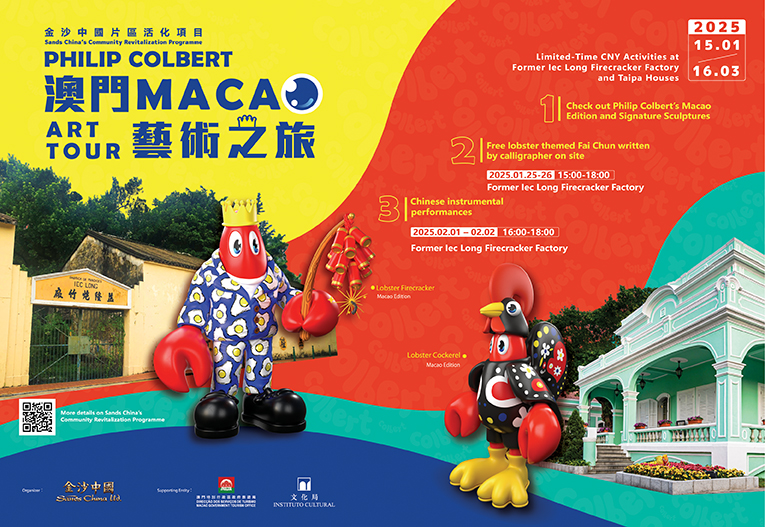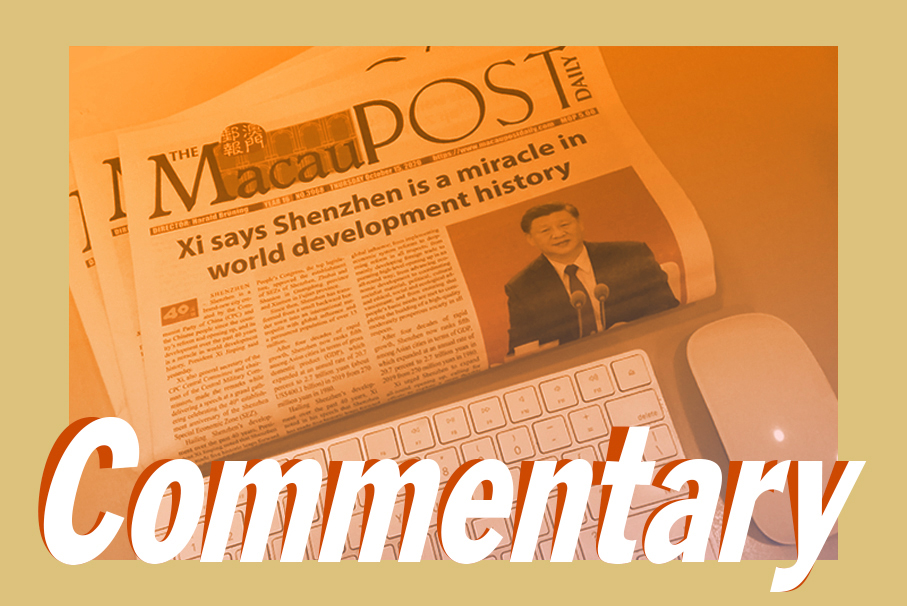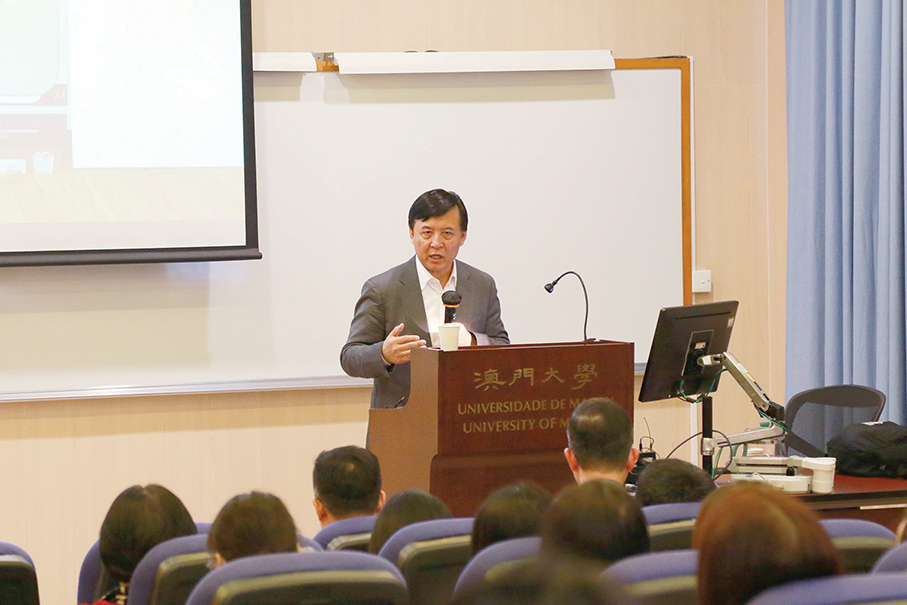The Macau University of Science and Technology’s (MUST) held an inauguration ceremony of its Zheng Guanying Research Centre in conjunction with the 2022 Haojiang Doctoral Forum (澳門科技大學鄭觀應研究中心成立儀式暨2022濠江新語博士論壇) on the private tertiary education institution’s campus in Taipa yesterday.
With the new research centre as an academic platform, MUST looks forward to enhancing the educational concept of “Loving the country and loving Macau”, as well as promoting the idea of Macau being part of the so-called “Cultured Bay Area” and also for Macau being the “base for exchanges and cooperation where Chinese culture is the mainstream and diverse cultures coexist”, MUST President Joseph Lee Hun Wei said in his opening speech at the one-day event.
Zheng Guanying (1842-1922 or 1923) was a Chinese reformist in the Qing Dynasty who lived in the UNESCO World Heritage-protected Mandarin’s House in Macau.
Apart from Lee, the deputy director of the Education and Youth Affairs Department of the Liaison Office of the Central People’s Government in the Macau, Shi Shuzheng; Education and Youth Development Bureau (DSEDJ) Deputy Director Teng Sio Hong; MUST Institute for Social and Cultural Research (ISCR) Director Lin Guangzhi and other officials attended the event.
Lee said in his opening speech that Zheng spent most of his lifetime “exploring” ways to make the nation prosperous. Thus, Zheng’s written works such as “Words of Warning to a Prosperous Age” focused on the nation’s reform and development in the political, economic, military, diplomatic, cultural, educational, and medical fields.
Lee stressed that the research centre aims to collect relevant historical materials, study Zheng’s life accomplishments, pass on Zheng’s ideological values, and enhance the spirit of loving the country. Lee noted that Macau’s culture is the city’s soul and the driving force that stimulates local innovation.
A MUST statement released on the sidelines of the event underlined that the research centre aims to bring in new motivation for MUST’s historical research and strengthen studies on Zheng’s thought as well as promote local Humanities and History studies.
Lin introduced the research centre’s work concepts and prospects between 2022 and 2026. Lin said that the research centre aims to play an important role for Macau to use and protect the Mandarin’s House and also to enhance local education on “Loving the country and loving Macau”.
Lin told reporters before the event that there is a need to study Zheng’s ideas because his work was related to Macau, and his former residence, the Mandarin’s House, is a UNESCO World Heritage Site.
Chiu’s House
Lin said he supports the government’s acquisition of Chiu’s House as it is a significant source for studying ancient buildings in past Chinese society. Liu also noted there are not many local buildings which are former residential compounds. Earlier this month, the Legislative Assembly’s (AL) Follow-up Committee for Public Finance Affairs revealed that the Cultural Affairs Bureau (IC) spent about eight million patacas last year on buying Chiu’s House to renovate and use it.
Chiu’s House is located on Travessa da Porta (橋巷) and was previously a private residential compound. It was built in the Daoguang Era during the Qing Dynasty, about 140 years ago. It once belonged to a Qing Dynasty official surnamed Chiu.
According to Wikipedia, the Daoguang Emperor (道光帝; 16 September 1782 – 26 February 1850), born Mianning, was the seventh emperor of the Qing Dynasty, and the sixth Qing emperor to rule over China proper, reigning from 1820 to 1850. His reign was marked by “external disaster and internal rebellion.”
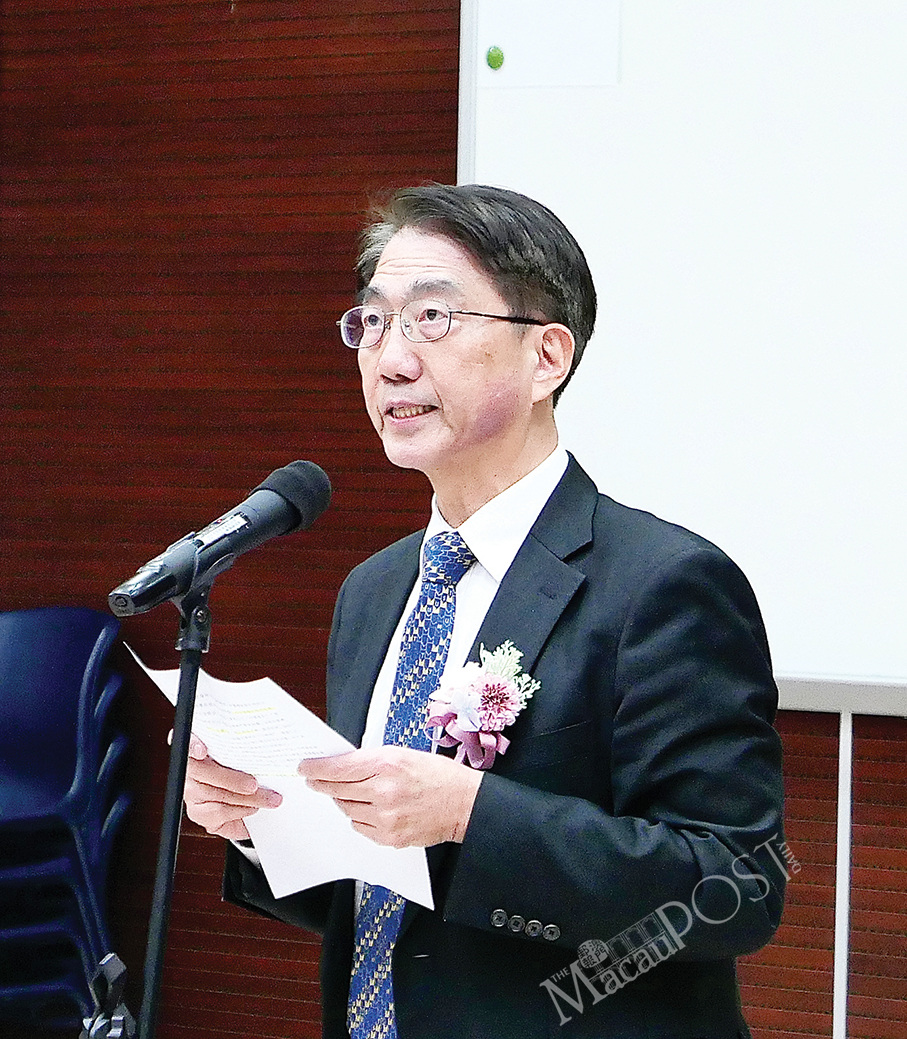
Macau University of Science and Technology (MUST) President Joseph Lee Hun Wei addresses yesterday’s “Macau University of Science and Technology Zheng Guanying Research Centre Inauguration Ceremony and 2022 Haojiang Doctoral Forum” on the MUST campus in Taipa.
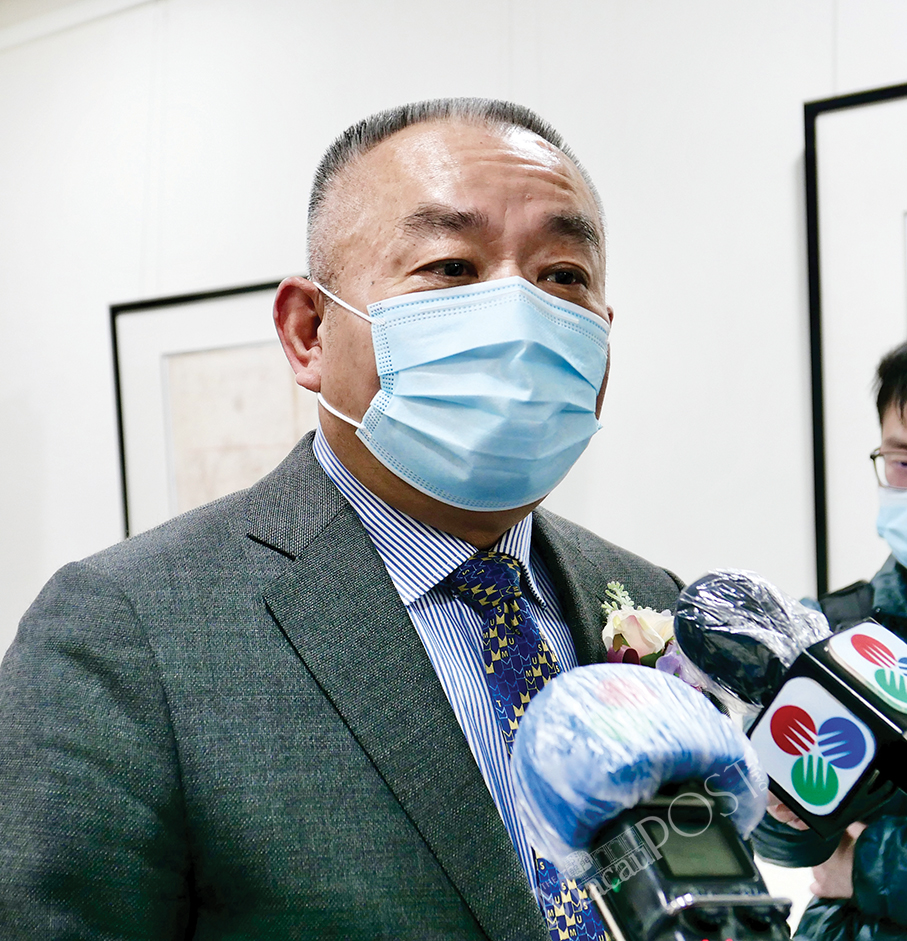
MUST’s Institute for Social and Cultural Research (ISCR) Director Lin Guangzhi talks to reporters before yesterday’s on-campus event. Photos: Ula Cheang

